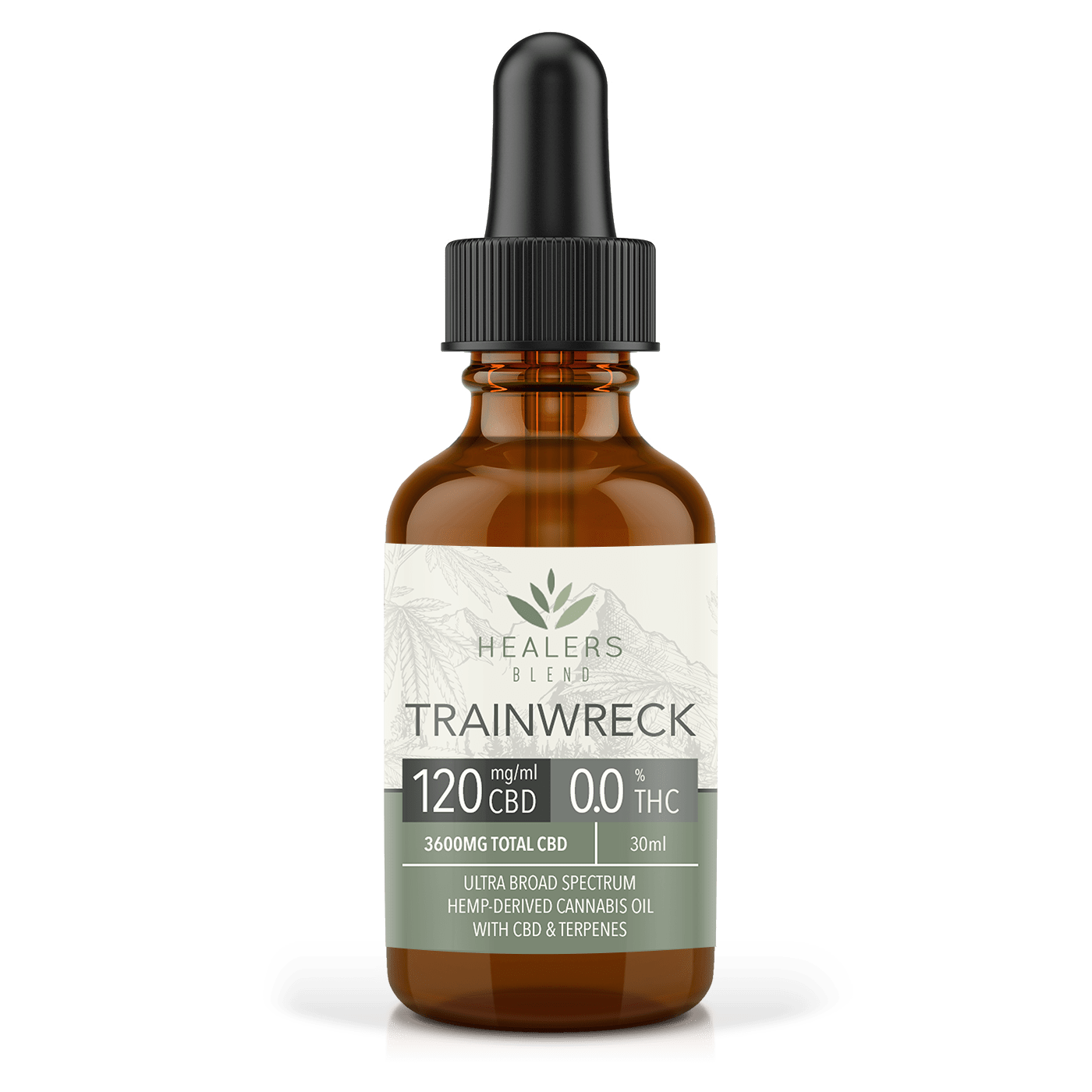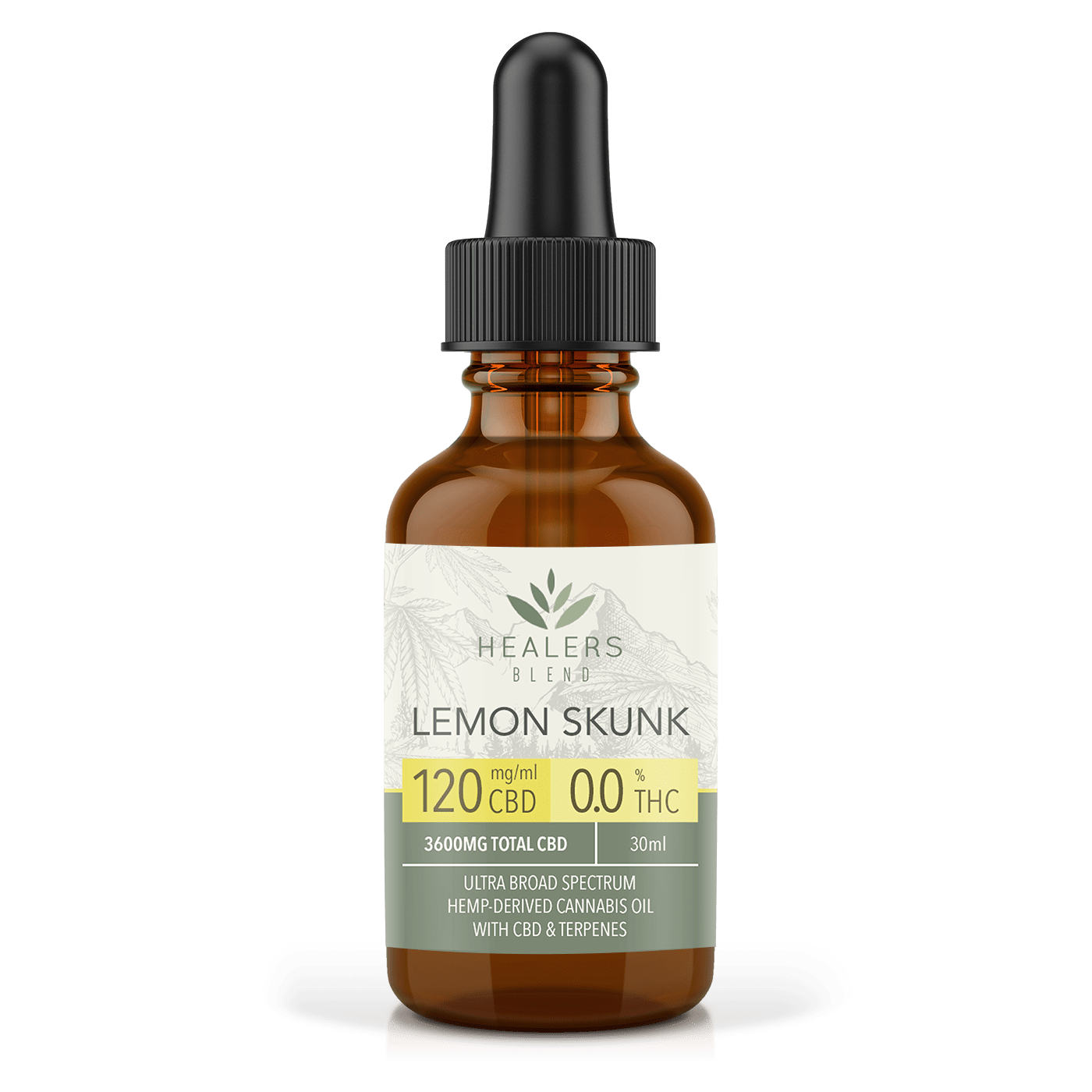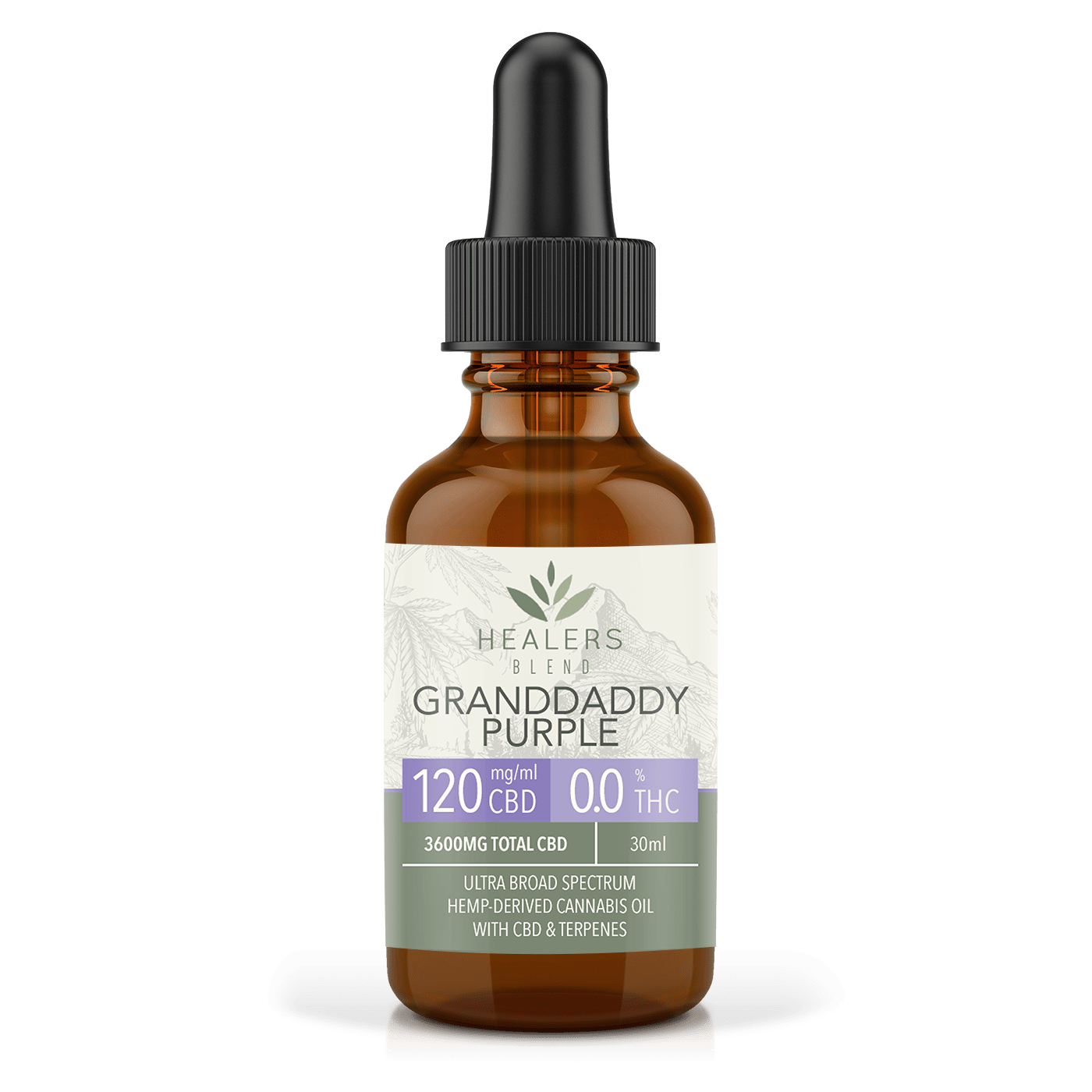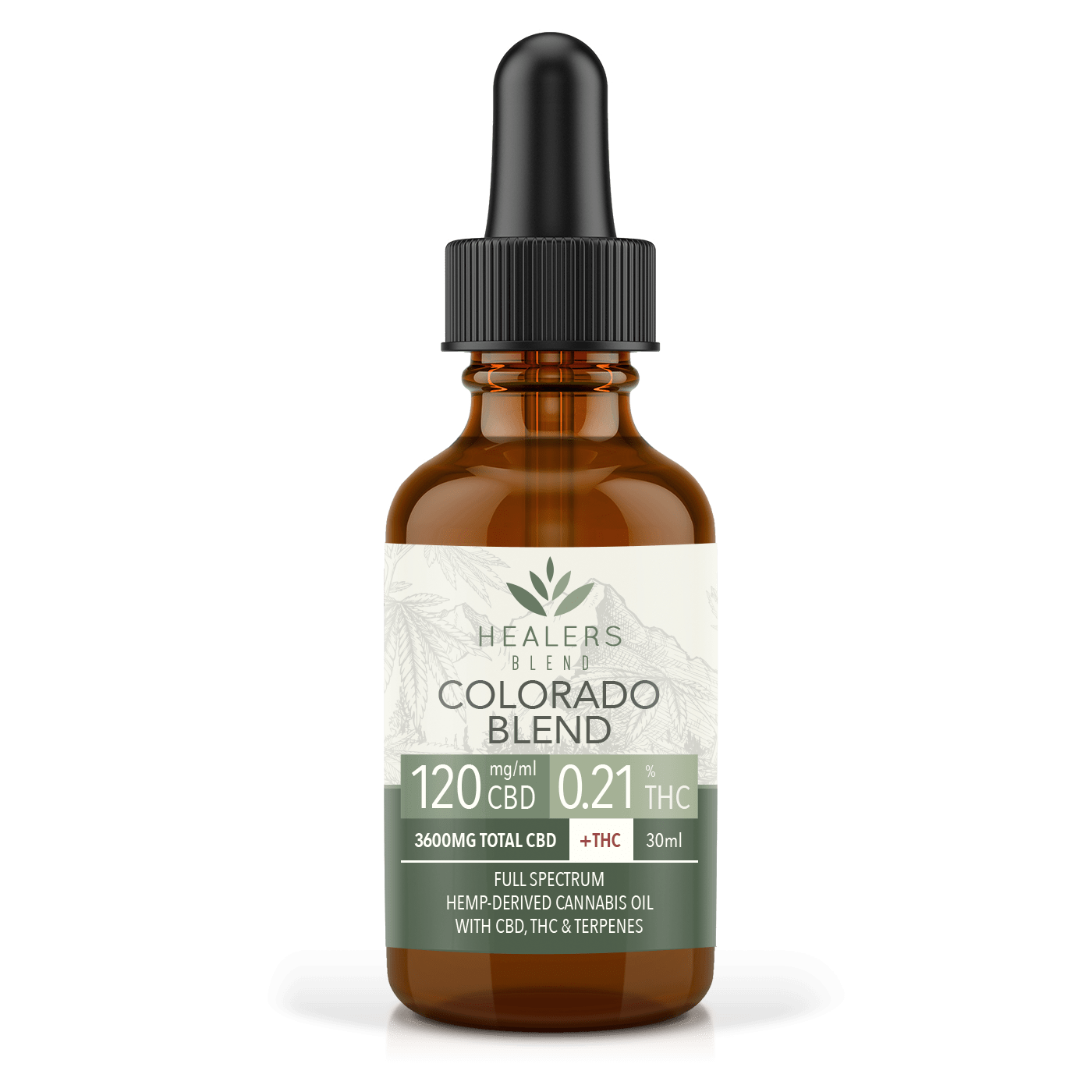Welcome to the Healers Blend Blog! The information in these pages are designed for both the general consumer, as well as, health and medical practitioners seeking to expand their working knowledge of cannabis and the potential of cannabinoid based therapies. While we work to ensure the information in these pages and resources is accurate and up to date, we do not make any claims as to the veracity or totality of the information contained herein. Research into cannabis as medicine is ongoing and our understanding of its many potential benefits continues to grow everyday. Our hope is that you will find this information beneficial and inspiring in your own search to better understand the potential of this incredible plant to increase overall health, vitality, and well-being. CBD products are not approved by the FDA for the diagnosis, cure, mitigation, treatment, or prevention of any disease. We are restricted from making any claims about the efficacy of our specific CBD products to treat or cure any disease or medical conditions. You should always seek the advice of a physician before adding nutritional supplements to your diet. The following information is presented for educational purposes only. Healers Blend provides this information to provide an understanding of the potential applications of cannabidiol. Links to third party websites do not constitute an endorsement of these organizations by Healers Blend and none should be inferred.
Research Shows CBD (Cannabidiol) As Potential Treatment For Various Forms Of Cancer
Recently, CBD has been gaining more spotlight both in the medical community and in public circles due to its many medicinal properties. These include the ability to reduce inflammation, anxiety, depression, seizures, PTSD, psychosis, glaucoma, stress disorders, among many others. Cannabidiol (CBD) is one of the cannabinoids found in the cannabis plant, and unlike the more famous tetrahydrocannabinol (THC) cannabinoid which gets people ‘high’, CBD does not cause any psychoactive effects.
More interestingly, CBD is quickly proving to be an effective anti-cancer agent as acknowledged by the National Cancer Institute in the U.S. As more and more research keep pouring in from all over the globe suggesting a link between CBD and cancer, an increasing number of patients are turning to the drug as an alternative for treating different kinds of this insidious disease, as it will be shown in depth in this article. The body of research supporting CBD as an antitumor agent is huge and it keeps growing every day. Therefore, this article will only look at some of the studies and forms of cancer. If you need more information, do not worry, we have provided many links to lead you to the right place.
Before we dive into the details of the numerous studies, however, first let us take a quick look of how cancer cells form in our bodies and the exact mechanism of how CBD is able to combat this awful disease.
The formation and progression of cancer cells
Our bodies are made up of trillions of cells (37.4 trillion cells for an average human being to be exact) which are differentiated and specialized to handle different functions – from transporting oxygen, digesting food or firing neurons in the brain. Most cells are able to divide and multiply to create new tissue, while others, for example muscle and nerve cells, can neither divide nor multiply. To control the ability as well as the rate of division and multiplication of cells, the body uses specific genes known as oncogenes. There are also genes specialized to signal the cells to stop growing called tumor suppression genes.
For cancer to occur, one of two things has to happen: either the oncogenes will be activated when they are not supposed to be, or the tumor suppression genes will be inactive when they are supposed to be preventing additional cell growth. This leads to a situation whereby cells keep dividing and multiplying to an excessive amount and in the end form a ball of malignant cells known as tumors.
Cancer undergoes five main stages before spreading to other body organs
As cancer cells develop into a tumor, they undergo various processes. That is:
- Hyperplasia
- Dysplasia
- Pushing and suppression of surrounding cells
- Invasion
- Metastasis
The first stage is called hyperplasia, where normal body cells start reproducing at an abnormally high rate. During the second stage called dysplasia, the new cancerous cells appear distorted and begin to form a growing ball of cells normally known as the primary tumor. The third stage is when the tumor starts pushing and suppressing the surrounding healthy cells. In the fourth period known as invasion, the tumor keeps increasing in size and starts attacking and invading the surrounding cells. In the fifth and final stage called metastasis, the tumor spreads into a lymph node or into a blood vessel where some of the cancerous cells are transported to different organs of the body through the lymph fluid or blood, where the first process – hyperplasia starts all over again.
Currently, researchers are still trying to pin down the exact cause of cancer. But, research shows that some factors play a critical role in the activation of hyperplasia, these include: abusing tobacco, specific viruses and chemicals, radiation that can ionize cells, elongated exposure to sunlight, etc. Now that we know exactly how cancer forms and develops, let us look at the exact mechanism of how CBD (and even THC) help in combating the disease through the various studies that have been going on all over the world.
The mechanism of CBD and THC in combating cancer
There is a huge body of research and anecdotal reports supporting the efficacy of CBD (and other cannabinoids) in fighting various types of cancer. Nonetheless, the information about the exact mechanism that causes the cells to die is not fully clear yet since cannabinoids have the capacity to interact with various cells differently. Therefore, to understand the data from the research even better, we first need to comprehend the process that causes cells to live or die. We also need to grasp how cannabinoids such as CBD interact with our bodies to exhibit so many therapeutic properties that have gotten everyone interested, from patients, researchers to enthusiasts.
A brief overview of the Endocannabinoid System (EC)
All animals, humans included, have a system called the endocannabinoid system (EC) that covers all the cells and nerves that developed over 600 million years ago. This system is comprised of endocannabinoids such as anandamide and 2-arachidonoylglycerol (2-AG) which bind with CB1 and CB2 receptors to promote various homeostatic processes. The receptors exist all over the body, with CB1 receptors concentrated in neuron cells while CB2 receptors are mostly found in the immune system such as in the spleen.
This system acts as a messenger between our immune system and the central nervous system, and it is responsible for managing our wellbeing at the cellular level. The endocannabinoid system is able to regulate a wide range of processes such as mood, inflammation or even trigger the death of a cell. The CB1 and CB2 receptors in the endocannabinoid system can also be activated by phytocannabinoids (cannabinoids derived from plants) such as CBD and THC. It is the ability of these compounds to interact naturally with our EC system that enable them to have a wide range of medicinal qualities including combating cancer.
How cannabinoids interact with different cells to achieve homeostasis
In every cell, there is a cell nucleus, several hundred thousand mitochondria, and other numerous organelles in the cytoplasm. Of all these, there are two main structures that sustain life, that is:
- The endoplasmic reticulum (ER)
- The mitochondria.
The ER is a loose covering around the cell’s nucleus responsible for synthesizing proteins and other metabolites that are used to feed and sustain the cell. The mitochondria, on the other hand, produce adenosine triphosphate (ATP) that provide the cell with the necessary energy to carry out its functions.
In a nutshell, when CBD is introduced into the body, it binds to CB2 receptors, which are densely packed in the spleen – the body’s immune powerhouse. From here, the immune cells seek out and destroy tumors.
It causes the death of cancer cells by disrupting the endoplasmic reticulum. It destroys the ER’s calcium metabolism by driving calcium into the cytosol which always results in the death of the cell. In addition, CBD also effects the death of cancer cells by activating the Caspase Cascade – a family of enzymes responsible for the programmed death of cells. It is also worth noting that scientists have discovered that CBD inhibits the reuptake of anandamide and 2-AG by inhibiting the enzyme that breaks it down. This way, CBD helps the body to preserve its own natural endocannabinoid and hence maintain good health.
Another cannabinoid found in the cannabis sativa plant called THC has also been shown to have anticancer effects. This compound naturally binds with CB1 receptors on the surface of the cancer cells causing it to generate a signaling metabolite known as ceramide. The increase in ceramide content in the cell causes the mitochondrial membrane to be more permeable to cytochrome c, a protein crucial in producing ATP. Consequently, cytochrome c is pushed out of the mitochondria, leaving it unable to produce energy, which in turn leads to the death of the cell.
The increase in ceramide content in the cancer cell also causes genotoxic stress in its nucleus leading to the production of a protein called p53, which disrupts the metabolism of calcium in the mitochondria. This further hastens the death of the cell. Ceramide also disrupts the cell’s digestive system (lysosome) that nourishes the cell and actively inhibits all pro-survival pathways in the cell, hence ensuring the death of the cell.
Note that these processes only occur in cancer cells since healthy cells have no reaction to neither CBD nor THC when they binds with CB1and CB2 receptors. Now that we have some background knowledge about how cancer forms and develops, let us take a look at the some of the interesting studies that show the efficacy of cannabinoids in combating cancer.
CBD and Breast Cancer
According to the National Cancer Institute, around 12.4% of women in the U.S. will be diagnosed with breast cancer in the course of their lifetime. Moreover, issues such as acquired resistance and toxicity often plague the available conventional treatments such as chemotherapy. This has led researchers to look for other novel agents that can do the job without doing much damage to healthy cells.
According to a study carried out in 2011 seeking to find the influence of cannabinoids on breast cancer cells, researchers found that cannabidiol (CBD) was able to significantly reduce Id-1 expression in breast cancer cells which in turn led to the reduction in the tumor’s aggression and invasiveness. Scientists tested five different cannabinoids namely: CBD, cannabigerol, cannabichromene, THC-acid and cannabidiol-acid. Of all these, CBD was found to be the most potent inhibitor of tumor growth.
In another study seeking to study the effects of CBD on breast cancer cells even further, the researchers found that CBD was able to inhibit both estrogen receptor-negative and receptor-positive breast cancer cells. CBD also induced cell suicide, a process known as apoptosis in cancerous cells depending on its concentration. Furthermore, CBD had little to no effect on MCF-10A cells, mammary cells and other cells that had not been affected by the tumor. As a result, the scientists concluded that CBD can prove to be an efficient agent in combating breast cancer since it only kills cancerous cells while reducing damage to normal breast cells.
If CBD continues to show promise in fighting breast cancer as more research trickles in, it may soon serve as an alternative for chemotherapy which often causes a lot of damage to healthy tissue and may initiate undesirable and sometimes catastrophic side effects. According to the authors of the report, CBD triggers and coordinates apoptosis and autophagy which lead to cell death. Autophagy is a cell recycling process whereby the body breaks down damaged cells and activates the formation of new ones hence maintaining homeostasis.
Most cannabinoids exert their effects by binding to CB1 and CB2 receptors found throughout the endocannabinoid system. Interestingly, the same study found that CBD was able to induce its homeostatic effects without activating these receptors. The researchers note that this is a promising front for future research since identifying the receptor through which CBD is able to effect apoptosis and autophagy can shed more light when designing novel drugs that have a similar mechanism of action as CBD.
CBD and Lung Cancer
Currently, non-small cell lung cancer (NSCLC) is the deadliest form of cancer globally. According to a recent investigation, it was found that cannabinoids increase the levels of a sticky molecule called ICAM-1 on lung cancer cells as its mechanism of action to reduce invasion and metastasis (ability to spread) of tumors. The investigation failed to determine exactly how CBD caused the death of cancer cells.
To address this knowledge gap, the scientists performed a further study using lung cancer cell lines obtained from a cancer patient. They looked at how the ICAM-1 molecules whose production was induced by CBD affects the adhesion of cancerous cells to white blood cells called lymphokine-activated killer cells (LAK). Based on the results, they established that CBD increased the likelihood of cancer cells to attach to LAK cells by increasing the levels of ICAM-1 and hence promoting their destruction also known as lysis. The researchers also looked at THC and anandamide and these cannabinoids also promote the production of ICAM-1 cells without doing any harm to normal cells.
Combined as one, this data suggests that the boost of ICAM-1 molecules by cannabinoids is responsible for the increased destruction of cancerous cells by LAK cells. This represents an anticancer mechanism of cannabinoids that was previously unknown. However, it still remains mysterious whether the same results can be replicated in a human being. Go here to learn more about CBD and lung cancer.
CBD and Cervical cancer
In the U.S., approximately 13,000 women are diagnosed with cervical cancer annually. This figure has dropped drastically over the last four decades due to regular pap tests since cervical cancer used to be the leading cause of death in women. In Sub-Saharan Africa, however, this disease is responsible for taking the lives of 250,000 women every year.
In a recent study carried out at the North-West University in South Africa, the researchers found that CBD is effective in inhibiting the spread of and even killing cancerous cells in the cervix The study used culture analysis techniques to investigate the anti-proliferative effects of cannabidiol as well as cannabis extracts containing CBD.
The scholars established that both the cannabis extracts and isolated CBD were effective at inhibiting the spread of cervical cancer tumors even at different concentrations. Upon further investigation, the scientists noted that CBD was responsible for inducing apoptosis – a programmed death of the cancerous cells.
Furthermore, it was recognized that even at lower concentrations, isolated CBD was found to be more effective in inducing cell death than when mixed with other cannabis extracts. Based on the data, the study concluded that CBD, rather than cannabis extracts is more responsible for apoptosis and inhibiting the metastasis of cervical cancer cell lines. However, the research failed to establish the mechanism of action of CBD on cervical cancer cells hence more research is required. You can learn find more studies about CBD and lung cancer here.
CBD and Pancreatic Cancer
Pancreatic cancer is estimated to kill 37,000 people in the U.S. every year, earning it the title of the fourth deadliest form of cancer in North America. Pancreatic cancer is highly aggressive, meaning it spreads fast and it is difficult to diagnose on time. According to studies, only 6% of patients with the disease live past five years since the date of diagnosis.
Scientists in Spain carried out a study seeking to find out the ability of cannabinoids to inhibit the growth and spread of pancreatic tumors. First, they used a cell culture experiment to determine whether pancreatic cancer cells contain increased levels of cannabinoid receptors, and yes, they do. Secondly, the researchers studied the effect of cannabinoids on these cells and they established that these compounds induce apoptosis in the cancerous cells.
Upon further study, the researchers determined that the cells’ apoptosis was induced through the activation of CB2 receptors – one of the two widely-known receptors found in the endocannabinoid system.
The team also investigated the effects of cannabinoids on living animal models after inducing growth of tumors in nude mice. The mice were then treated using a placebo, tetrahydrocannabinol (THC) and CBD. The results showed that cannabinoids are able to inhibit tumor growth, prevent it from spreading to nearby cells and even induce apoptosis in the animal models. The investigators concluded that cannabinoids, more specifically CBD lead to the death of pancreatic tumor tissue via CB2 receptors. They go on to add that the findings could inspire a new approach for the treatment and management of pancreatic cancer in the near future. Here are other studies about CBD and pancreatic cancer you can also look at.
CBD and Prostate Cancer
In America, prostate cancer is the very common among adult males with about 12.9% new diagnoses every year and the disease is considered a global pandemic. Unfortunately, the condition is very difficult to treat, as is the case with most cancers. This is especially so because prostate cancer spreads to other body organs in a process called metsastasis. Recently, evidence has been piling up showing that cannabinoids found in the cannabis sativa plant can inhibit the growth and even kill these cancerous cells.
According to a 2012 peer review study published in the Indian Journal of Urology, the researchers determined that prostate cancer cells contain increased levels of CB1 and CB2 receptors. Based on studies performed by Dr. Sarfaraz, the scientists concluded that the stimulation of these receptors in the prostate glands by CBD leads to increased apoptosis, decreased cell vitality and viability and decreased androgen receptor expression. Androgens play a significant role in the progression of prostate cancer. Based on the research, the scientists concluded that:
“A mixed CB1/CB2 treatment or other non-habit-forming cannabinoid receptor agonists could be developed as novel therapeutic agents for the treatment of prostate cancer.”
You can learn more about CBD and pancreatic cancer here.
CBD and Colorectal Carcicoma
Colorectal carcicoma is a type of cancer that starts in the colon or rectum and hence it is also known as rectal or colon cancer. Based on the available research, cannabinoids found in the cannabis plant shows a lot of potential in reducing the spread and aggressiveness of colorectal carcicoma by proteting the DNA from damage that occurs via oxidation, increasing the levels of endocannabinoids in the affected areas and reducing the proliferation of the tumor using various mechanisms.
For instance, in an investigation carried out by researchers from UK and Italy and published in the Journal of Molecular medicine, the examiners concluded that cannabis extracts high in CBD concentration are able to prevent the spread of colon cancer in nude mice. The CBD was successful in inhibiting the growth of cancerous cells without affecting the healthy ones by activating CB1 and CB2 receptors.
The study also used isolated CBD to analyze its effects on colon cancer and based on the result, the compound was able to activate CB1 and CB2 receptors which inhibited the growth of the cells. According to the lead of the researchers, the study confirmed that CBD exerts protective effects to healthy cells in an experimental model of colon cancer and also portrays antiproliferative actions in colorectal carcinoma tumors. CBD was confirmed to have non-toxic effects to healthy cells in a study published in the Current Drug Safety scientific journal.
CBD and Leukemia
Leukemia refers to cancer of the blood cells or bone marrow. This disease attacks the white blood cells causing them to multiply uncontrollably and crowd out red blood cells in the blood. Red blood cells are responsible for transporting blood in the body. Therefore, overcrowding of blood by the white blood cells diminishes the body’s ability to transport sufficient oxygen to all cells which in turn causes anemia.
Unlike healthy white blood cells, the cancerous ones are unable to fight against disease, which further decreases the body’s immunity. As a result, leukemia patients find it difficult to ward off even the most common illnesses such as the flu or fungus infections. Currently leukemia is treated using blood transfusions, radiation and chemotherapy. These therapies have been linked to a lot of problems later in the patient’s life such as lung problems, infertility, high blood pressure, hormonal imbalance, hearing loss, neuropathy and osteoporosis. As a result, there is need for a novel medical agent with less side effects and scientists have been busy looking for one in an unlikely place: the cannabis plant.
According to the results of a study published in May 2017 in the International Journal of Oncology, the researchers found that the two most prominent cannabinoids in the cannabis plant, that is CBD and THC, are able to kill leukemia cells independently. Also, the study established that these compounds are most effective after chemotherapy.
Another study carried out in 2006, researchers concluded that plant derived cannabinoids, namely CBD and THC induce apoptosis in leukemic cells. The investigation, however, failed to establish the exact mechanism of how these compounds kill leukemia tumors. According to another 2008 study, researchers were able to show that higher doses of CBD and THC result to higher levels of apoptosis in the cancerous cells. The study also suggested that using cannabinoid treatments with other cytotoxic agents could hasten the death of these cells.
CBD and Hepatocellular carcinoma
Hepatocellular carcinoma, also known as HCC is one of the most common types of liver cancer that mostly affect men aged 50 and above. It is considered the third most lethal form of cancer worldwide and accounts for approximately 75% of all reported liver cancers in the U.S.
Unlike metastatic liver cancer, HCC forms and stays in the liver and is caused by scarring of the liver tissue. A wide range of factors such as liver cirrhosis can cause this scarring. However, the main factors include: alcoholism, hepatitis B or C virus, and autoimmune diseases of the liver. As we speak, the conventional treatments available for HCC are not effective, especially when the illness advances to its late stages.
Nevertheless, there is some light at the end of the tunnel after the United States National Library of Medicine reported that cannabinoids might soon prove to be a viable treatment option for this sinister disease. According to the report, the study’s objective was to investigate the role of cannabinoids as novel therapeutic targets in treating HCC. The researchers used synthetic cannabinoids on the cancerous cells and they concluded that even man-made cannabinoids are able to inhibit the growth of HCC by inhibiting cell proliferation, migration and invasion by the tumor, hence making the liver healthier. The cannabinoids were shown to cause cell apoptosis even when in low concentrations and as early as six hours after exposure to the cancerous cells. To learn more about CBD, this link contains more studies.
Summary
According to the reviews presented above, preclinical research on cannabinoids confirm that these CBD and THC exert anticancer effects through a number of ways, which include:
- Triggering cell suicide through a process known as apoptosis
- Stopping cancerous cells from invading other body tissue hence reducing the chances of cancer cells spreading
- Stopping cancerous cells from dividing and multiplying
- Cutting off the blood flow that supplies the tumor with nutrients
- Hastening a process called autophagy which is responsible for the recycling of cells and which leads to cell death
Scientists believe that all these effects occur when cannabinoids lock onto the CB1 and CB2 receptors and new research keep confirming the efficacy of these compounds in fighting cancer. Recently, the number of activists, enthusiasts and extractors proclaiming cannabis to be a cure for all cancers have increased tremendously due to the numerous studies that show the potential of cannabinoids in killing certain types of cancer cells. Nonetheless, do not be carried away by all the information going around, since there are very many types of cancer that portray in different ways and require unique targeted treatment. In addition, these studies have only been performed in test tubes and on mice.
One of the major reasons that may postpone the availability of a cannabinoid-based drug for treating cancer even if cannabis was delisted as a Schedule I drug is the issue of ethics in the case of human trials. You see, it would be very unethical for any doctor to recommend the use of an unproven plant extract in favor of proven treatments exclusively. This situation will change when there will be irrefutable clinical proof or if the anecdotal evidence becomes substantial enough to make it unethical not to carry out human trials. But until then, we need to be cautious and patient.
In conclusion, instead of accepting cannabinoids as a cure for all cancers, the better approach is understanding that these compounds have shown a lot of potential to combat some types of tumors. Therefore, in case you want to try some full spectrum CBD oil or THC extracts to treat some form of cancer, do it only as a supplement to the treatment recommended by your oncologist.
So, is CBD good for cancer patients? The answer is – absolutely YES! This is because besides its anticancer properties, CBD has many other medicinal properties including: reducing inflammation, pain, seizures, vomiting, and muscle spasms as well as promoting appetite, bone growth and protecting the cells in the nervous system.
Every day, new evidence is trickling in, especially from animal studies, helping researchers to understand how CBD works to effect cancer, tumor growth and cancer-related symptoms . The potential of CBD to treat various forms of Cancer continues to be supported by an ever-growing body of research. If you would like to read through the current research visit the Cancer research page at Healers Blend.






